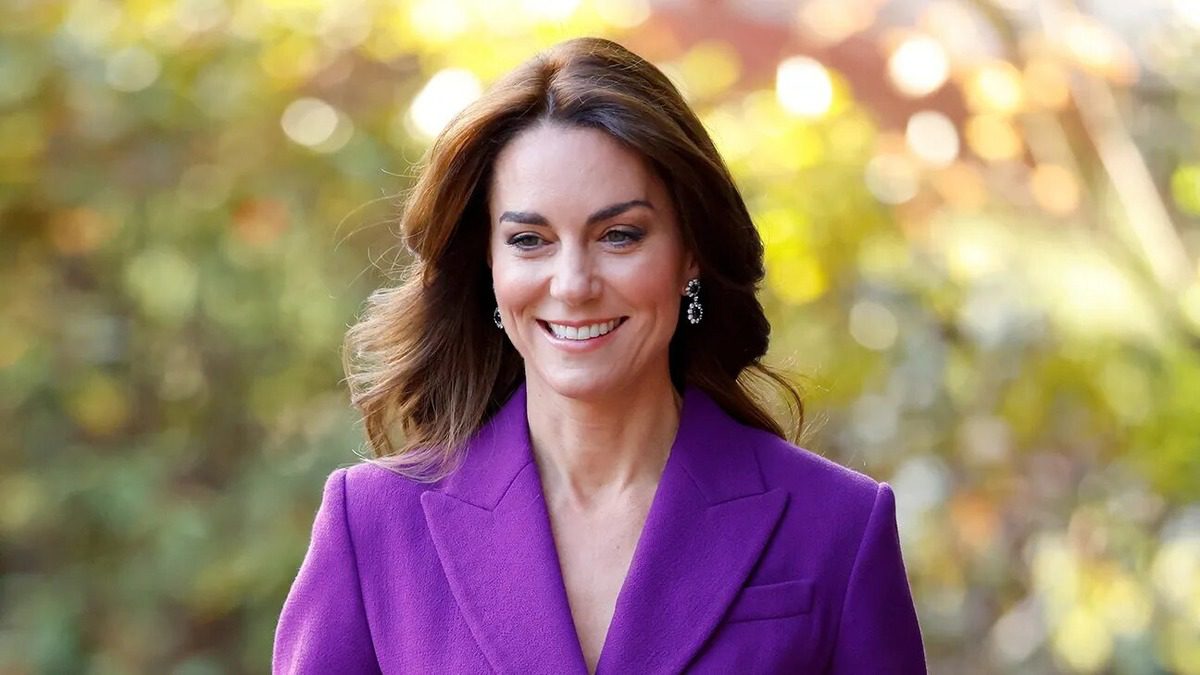Palace Shares Photo of Kate Middleton Amid Online Conspiracy Theories
Despite Kate Middleton’s revelation of undergoing preventative chemotherapy, aimed at quelling a storm of baseless rumors during her prolonged absence from public life, conspiracy theories continue to linger, casting shadows over her health.
London: The recent disclosure of Princess Catherine of Britain battling cancer triggered an immediate backlash against a deluge of sensationalized speculations circulating on social media platforms, with some even suggesting her demise. However, the somber revelation failed to stem the tide of ongoing conspiracy narratives.
Kate Middleton, aged 42, garnered widespread global sympathy following her video announcement on Friday, disclosing her cancer treatment journey. This disclosure aimed to dispel the unfounded allegations that had been circulating during her extended retreat from public engagements.
The alteration of an official royal photograph released to the media, coupled with the British monarchy’s entrenched culture of secrecy, served as fuel for the rampant online conjecture.
Nevertheless, the proliferation of evidence-free conjectures on social media platforms, including posts adorned with skull emojis claiming the princess’s demise or her being in a medically induced coma, underscores the prevailing era of informational chaos in the age of artificial intelligence and misinformation, distorting public perceptions of reality.
The speculation escalated significantly when the British authorities were prompted to investigate an alleged attempt to access her confidential medical records.
Writer Helen Lewis remarked in the US magazine The Atlantic, “Kate has been essentially coerced into making this statement. The alternative—uncontrolled gossip and conspiracy theories—would have been far worse.”
The British tabloid Daily Mail also expressed indignation, questioning, “How do those despicable online trolls feel now?”
If the content of social media posts is any indication, remorse seems to be in short supply.
Numerous users on platforms like X (formerly Twitter) and TikTok propagated the notion that Kate Middleton’s video message was a product of AI-generated deepfake technology.
Some users disseminated slowed-down versions of the video to substantiate their unfounded claims of digital manipulation, questioning the absence of any movement in the background, such as a leaf or a blade of grass.
Others meticulously analyzed her facial expressions, speculating on the absence of a dimple, as seen in previous images.
“I’m not convinced by the House of Windsor, Kate Middleton, and the mainstream media—still not buying it,” read one post on X. “Actually, I’m not sorry at all. Haven’t we all read ‘The Boy Who Cried Wolf’?”
Moreover, misinformation regarding cancer itself proliferated, with posts erroneously asserting that the disease is not fatal while likening chemotherapy to “poison.”
And the anti-vaccine activists didn’t lag behind either.
Many of them eagerly jumped on the conspiracy bandwagon, baselessly linking Kate’s diagnosis to the debunked myth of “turbo cancer” associated with Covid-19 vaccines.
“There’s absolutely no evidence supporting the ‘turbo cancer’ falsehood,” affirmed Timothy Caulfield, a misinformation expert from the University of Alberta in Canada.
Conspiracy theorists, he added, “are exploiting fear and disseminating misinformation.”
The proliferation of such outlandish theories underscores the increased scrutiny faced by facts in an internet landscape rife with misinformation, exacerbated by widespread public distrust of institutions and traditional media.
This same pervasive distrust, researchers argue, has tainted online discourse on critical issues, ranging from elections and climate change to healthcare.
“People are becoming increasingly skeptical of what they see and read,” observed Karen Douglas, a professor of social psychology at the University of Kent. “Once doubt is sown, and trust is lost, conspiracy theories find fertile ground.”
The rumor mill surrounding Kate Middleton gained momentum following her retreat from public life after undergoing abdominal surgery in January, following her appearance at a Christmas Day church service.
Conspiracy theories reached new heights after the princess admitted to editing a Mother’s Day family portrait, prompting news agencies like AFP to retract it.
A fresh wave of speculation emerged when a subsequent video surfaced, showing Kate strolling through a market with her husband, leading to baseless claims that she had been replaced by a body double.
“With an institution as venerable and enigmatic as the royal family, public skepticism fuels an appetite for intense scrutiny,” remarked Dannagal Young from the University of Delaware.
Hashtags related to the princess gained such traction on social media that many users began leveraging them to amplify unrelated posts on subjects that typically receive far less attention, including human rights abuses in India and the Middle East.
Compounding the frenzy, researchers argue, was the royal family’s penchant for secrecy and what appeared to be a flawed PR strategy.
“To be frank, the palace could have nipped this situation in the bud much earlier,” remarked Douglas.
#KateMiddleton #ConspiracyTheories //#RoyalFamily #CancerAwareness
